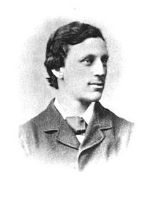
Arnold Toynbee
Arnold Toynbee British historian; Uncle of Arnold J. Toynbee
Lectures on The Industrial Revolution in England (1884)
- Economists, firstly, regard only one part of man's nature, and treat him simply as a money-making animal; secondly, they disregard the influence of custom, and only take account of competition. Certain laws are laid down under these assumptions; as, for instance, that the rate of wages always tends to an equality, the permanent difference obtaining in various employments being only sufficient to balance the favourable or unfavourable circumstances attending each of them— a law which is only true after a certain stage of civilisation and in so far as the acquisition of wealth is the sole object of men.
- The right method in any particular case must be largely determined by the nature of the problem.
- The proper limits of Government interference are relative to the nature of each particular state and the stage of its civilisation. It is a matter of great importance at the present day for us to discover what these limits are in our own case, for administration bids fair to claim a large share of our attention in the future.
- It would be well if, in studying the past, we could always bear in mind the problems of the present, and go to that past to seek large views of what is of lasting importance to the human race.
- Party historians go to the past for party purposes; they seek to read into the past the controversies of the present.
- You must pursue facts for their own sake, but penetrated with a vivid sense of the problems of your own time. This is not a principle of perversion, but a principle of selection. You must have some principle of selection, and you could not have a better one than to pay special attention to the history of the social problems which are agitating the world now, for you may be sure that they are problems not of temporary but of lasting importance.
- It is a great law of social development that the movement from slavery to freedom is also a movement from security to insecurity of maintenance.
- We must expect for a long time yet to see capitalists still striving to obtain the highest possible profits. But observe, that the passion for wealth is certainly in some senses new. It grew up very rapidly at the beginning of the present century; it was not so strong in the last century, when men were much more content to lead a quiet easy life of leisure. The change has really influenced the relations between men; but in the future it is quite possible that the scramble for wealth may grow less intense, and a change in the opposite direction take place.
- The Comtists are right when they say that men's moral ideas are not fixed. The attitude of public opinion towards slavery was completely changed in twenty or thirty years. Still I am obliged to believe that such a moral revolution as the Comtists hope for is not possible within a reasonable space of time.
- There remains the ordinary Communist solution. This has taken various forms; the simplest being a voluntary association of individuals based on the principle of common property, and in which every person works for the community according to fixed rules. There are many successful instances of this, on a small scale, in the United States, but we cannot suppose such a solution to be possible for society as a whole. It has only been tried with picked materials, whereas our object is rather to improve the great mass of the population. The Communism of recent European theorists, of whom the best known is Lassalle, presents a somewhat different aspect. It aims at the appropriation of all instruments of production by the State, which is to take charge of the whole national industry and direct it. But the practical difficulty of such a scheme is obviously overwhelming. The objections to a Communistic solution do not apply to Socialism in a more modified shape. Historically speaking, Socialism has already shown itself in England in the extension of State interference. It has produced the Factory Laws, and it is now beginning to advance further and interfere directly in the division of produce between the workmen and their employers
- We must remember that the real problem is not how to produce some improvement in the condition of the working man— for that has to a certain extent been attained already— but how to secure his complete material independence.
- It is a paradoxical but profoundly true and important principle of life that the most likely way to reach a goal is to be aiming not at that goal itself but at some more ambitious goal beyond it.
